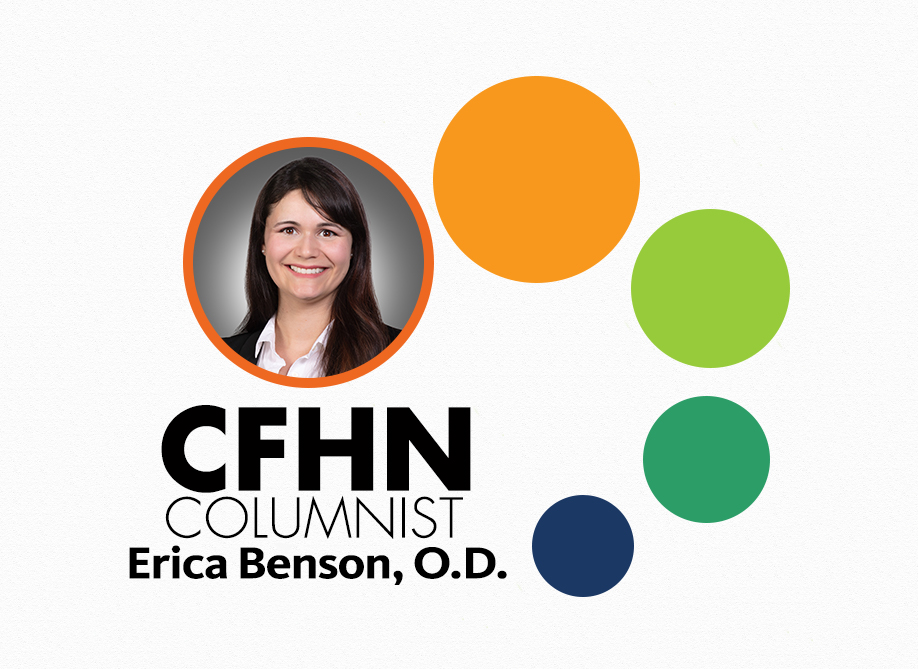“Is there anything that I can eat that is good for my eyes?” Of course!
Your eyes are part of your body, and keeping your body healthy is the very first step to keeping your eyes healthy. During your dilated eye exam, your eye doctor is able to get a magnified view of your retina and the blood vessels inside of your eye. These blood vessels are very fragile and delicate, and thus if we see a problem with them, they can be an early warning sign for the rest of your body that something is wrong.
We usually recommend the same things that your primary care doctor recommends. High blood pressure, diabetes, heart disease and high cholesterol are all conditions that cause damage to your eyes. We want to prevent those conditions as much as we can, so we advise limiting your intake of fried foods, sugar-sweetened beverages, and salt. We also recommend tracking your dietary intake to gain a better understanding of nutrients that you are consuming.
A healthy eating pattern includes a variety of vegetables, fruits, grains (especially whole grains), fat-free or low-fat dairy, lean protein sources, and oils while limiting saturated fats, trans fats, added sugars, and sodium, according to the 2015-2020 Dietary Guidelines for Americans.
Many patients would like to know what they could do to help prevent conditions such as macular degeneration. We often recommend starting certain eye vitamins, called AREDS 2 if we see evidence of macular degeneration in our patients.
Your primary care eye doctor (optometrist) or eye surgeon (ophthalmologist) can detect signs of macular degeneration during a comprehensive dilated eye exam. They may also use a special machine called an OCT that scans the retina in great detail to better evaluate the macular degeneration.
While the eye vitamin supplements are helpful, your body absorbs nutrients better from food. Colorful vegetables, dark leafy greens (such as spinach, kale, red and orange peppers) have pigments that are protective against macular degeneration.
Several patients who are taking blood thinners such as Coumadin should be cautious when changing their diet, and should speak to their doctor about how to do so safely.
We also recommend at least 2000 mg a day of omega 3s. Omega-3 plays an important role in the body: it decreases inflammation. It can help lower triglycerides (the bad part of cholesterol). It helps promote healthy pregnancies. It lowers high blood pressure and it prevents blood clots, and thus helps prevent heart disease. Salmon is a good source of omega 3s, but if you do not like fish, other good sources of omega 3s are chia seeds, flax, walnuts, and edamame. You can also take a supplement as well.
Eating healthy is a lifelong journey, and there is no quick fix we can recommend. Basically, what you eat can absolutely affect your eye health. There is nothing you can eat that can make you see “20/20”, but eating a balanced diet will help prevent problems (such as diabetes, high blood pressure, heart disease, and high cholesterol) with your body that can ultimately damage your eyes. The ophthalmologists and optometrists of Eye Specialists of Mid-Florida can help answer your questions regarding eye health nutrition. Call us at 800-282-3937 or visit us online at www.EYESFL.com
Dr. Benson is a Board Certified Optometrist who sees patients at the Auburndale, Haines City, and Winter Haven Eye Specialists of Mid-Florida locations.
